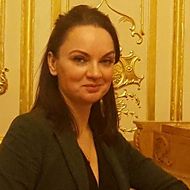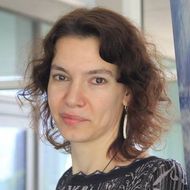- A
- A
- A
- ABC
- ABC
- ABC
- А
- А
- А
- А
- А
- HSE Campus in St. Petersburg
- School of Arts and Humanities
- Department of Foreign Languages
- Teaching foreign languages at HSE St. Petersburg
-
Department
-
Teaching
-
Teaching foreign languages at HSE St. Petersburg
-
English
-
German
-
French
-
Portuguese
-
Chinese
-
-
Features of assessment
-
English
-
German
-
French
-
Portuguese
-
Chinese
-
- Important documents
- Russian as foreign language
- Additional foreign language courses
-
Teaching foreign languages at HSE St. Petersburg
193171, Saint Petersburg,
55 Sedova Ulitsa, Building 2, room 310
phone (812) 560-03-32
198099, Saint Petersburg,
17 Promyshlennaya Ulitsa, room 405 А
phone (812) 300-83-49
194100, Saint Petersburg
3 Kantemirovskaya Ulitsa, room 210, 211
phone (812) 644-59-11 * 61526 (812) 644-59-11 * 61527


M.: Higher School of Economics, National Research University, 2023.
Shcherbakova I. O., Svetlana N. Kucherenko, Smolskaia N. B.
Education Sciences. 2023. Vol. 13. No. 2.
Shchemeleva I., Smirnova N. V.
In bk.: Narratives and Practices of Mentorship in Scholarly Publication. Brunner - Routledge (US), 2024. Ch. 3.
Literary Studies. WP BRP. Высшая школа экономики, 2015. No. WP BRP 11/LS/2015 .
Teaching foreign languages at HSE St. Petersburg
Foreign language training is based on the unified conception of language learning, which facilitates the unity of the educational environment throughout the university while conforming to Russian and international requirements to the foreign language proficiency that is needed for academic mobility. The conception ensures transparency and clarity of the principles of mobility, educational methods, subject matter, and requirements.
English as a foreign language is taught in all university faculties and branches. The process is divided into two stages:
Stage 1 – First- and second-year undergraduate students, 14 credits, an elective course
The course provides serious language training for all university students who are enrolled in all faculties and branches. Training takes into account students’ specific academic programme and professional interests. Completion of this course will ensure that students will have the ability to master their programme courses that are taught in English.
At the end of both the first and second year of studies, all students are required to take an English language proficiency test.
The course aims to bring students’ proficiency level to B2-C1 of CEFR, which is required for taking courses taught in English, as well as for research and professional activities.
First year – 8 credits, 2 classes per week, 1-4 modules. Teaching focuses on general and academic English and English for business communication. Regardless of whether they take this course, all students are required to take a test at the end of the year.
Second year – 6 credits, 2 classes per week, 1-3 modules. Teaching focuses on academic and professional English. At the end of the third module, regardless of they have chosen to take the course, all students are required to take an independent test similar to an international language examination.
Stage 2 – A course entitled ‘Academic Writing in English’ is required for fourth-year undergraduate students (2 credits, 1 class per week, 1-3 modules). This course equips students with the skills and experience needed to write an academic article (Research Project Proposal) in English. At the end of the course students present the written article and give an academic presentation of their project in English.
The Department provides instruction both to students who have received state-funded scholarships and who are covering their tuition fees themselves.
Apart from providing English language training for university faculties and branches, the Department of Foreign Languages also offers business language courses for HSE students and other groups of participants.
-
https://elearning.hse.ru/en/mooc/
Massive Open Online Courses
-
https://www.hse.ru/en/visual/
HSE Site for the Visually Impaired
-
http://5top100.com/
Russian Academic Excellence Project 5-100
- © HSE University 1993–2024 Contacts Copyright Privacy Policy Site Map
- Edit



